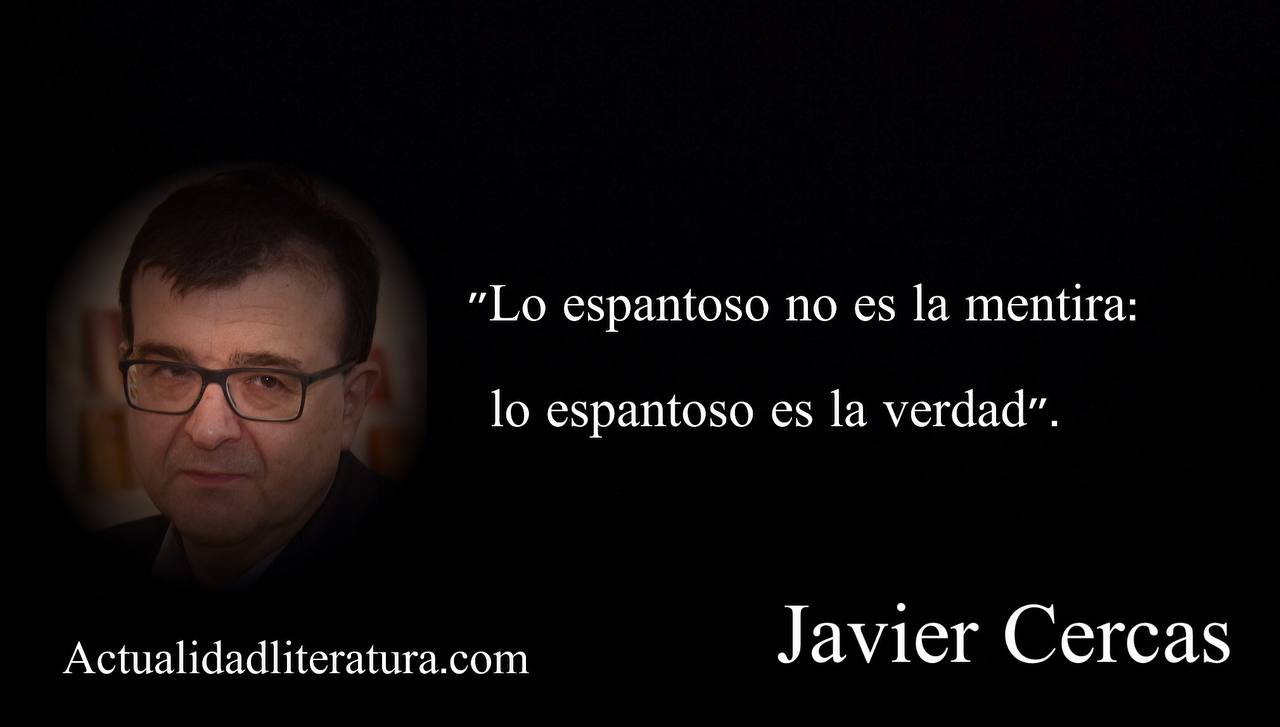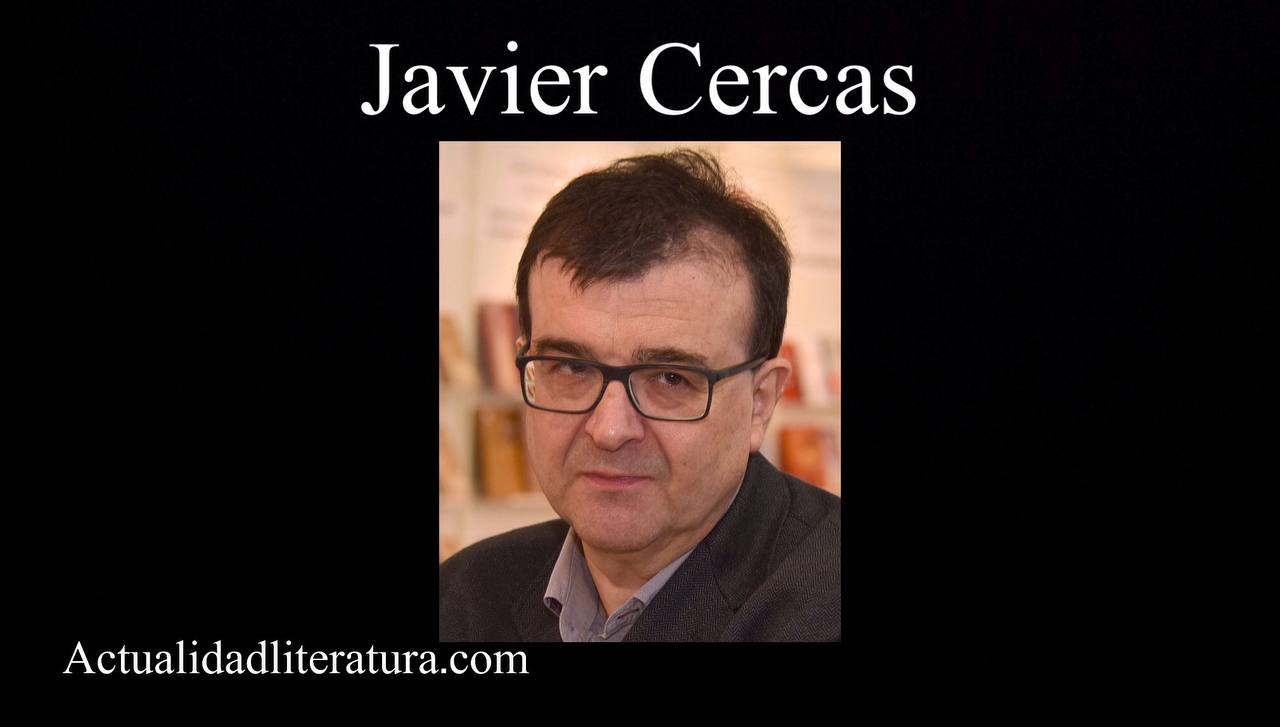
Javier Cercas: phrase
The laws of the border is a novel written by the opinion journalist and Spanish author Javier Cercas. Editorial Mondadori was in charge of publishing the work in 2012. The material was included in the “Mondadori Literature” collection, with an edition in Catalan that was launched in November of that same year. The book received good reviews from the press, and was awarded the Mandarache Prize in 2014.
Javier Cercas dedicated The laws of the border his wife, Mercè Mas, his son, Raül Cercas, and many of his childhood friends. For its readers, the text represents a particular translation of the post-Franco period. Contrary to this concept, the novelist wrote a more political version of the same event in his previous book: Anatomy of an instant (2009)
About the context of the work
The novel tells the story of Gafitas, Tere and El Zarco, a trio of juvenile delinquents who are engaged in robbery at the time of the Spanish transition. The events take place during the summer of 1978, in a Girona full of misery, outside the margin of society and the law.
Twenty years later of his outlaw adventures, Zarco queen as el malefactor best known in Spain. In the meantime, Glasses has become the most prestigious lawyer of that city.
In this context, Tere reappears, and becomes the meeting point between Zarco and Gafitas. The latter, perhaps because of the nostalgia that the woman's presence brings him, decides to intercede for his former bandmate and get him out of jail. To create the main thug in the play, Javier Cercas was inspired by a famous Spanish criminal named Juan José Moreno Cuenca, also known as El vaquilla.
Synopsis of The Laws of the Border
This work is divided into two parts. At the same time, both sections are divided into numbered chapters. The first composition is named "Beyond", and has nine sections. The second, has twelve chapters and it is titled "More here". Through this peculiar structure, Javier Cercas writes, by way of interviews, a convoluted plot told through almost monologue conversations by witnesses to the events.
Part One: Beyond
A writer —character with few interventions within the novel— plans to tell the story of Zarco, considered the most recognized bandit of the generation of the 70s in Spain. To carry out this task, agree to an interview with Ignacio Cañas, who met the thug in 1978, when the two lived in post-war Girona, a socially divided environment.
Back then Reeds figured as a charnegon —pejorative adjective that was used in Catalonia in the 50s and 70s to designate immigrants from that community— middle class who lived harassed by a gang of adolescents. For its part, El Zarco existed precariously in the shelters provisional from La Devesa. Ignacio tells the writer how he met Zarco, and how he nicknamed him "Gaffas" because of his glasses.
The young delinquent was also accompanied by a beautiful girl named Tere, who urged Ignacio to go with them to a dangerous and old bar known as La Font. In this tavern he used drugs and committed a crime for the first time. from that moment he became part of Zarco's group, and with Tere and other characters attended discos, they robbed, they were persecuted until, after a forceful event, the group separates and several members are imprisoned.
Second part: More here
At this point in the text, the writer understands that his story will not be complete until he mentions the allies of the Zarco in his first adventures —which includes Gafitas, Tere and a man known as The General. The plot jumps to 1999where a zarco already recognized and addicted to heroin is transferred to the prison of Gerona, which, by that time, had become a touristic and safer city.
Glasses, on the other hand, He had a daughter and is divorced.. As a lawyer, decides to take the leader's case from his old gang, perhaps to make up to him for past favors. However, the convict maintains a huge criminal record, and, although he seemed to want to put his past behind him, he still clung to the fame that all his years of crimes gave him.
Cañas remained happy and busy for a few months, while, through tricks and deceit, appeased justice to free Zarco. However, the man committed a crime again. on several more occasions, until, already weak and consumed by AIDS, he established himself in the Gerona prison. The lawyer visited him occasionally until his death. Tere disappeared after that, leaving Cañas to face all the losses in the company of her daughter and psychoanalytic treatment.
About the author, José Javier Cercas

Javier Fences
José Javier Cercas Mena was born in 1962, in Ibahernando, Spain. He is a writer, journalist, university professor and Spanish philologist, recognized for works like Soldiers of Salamis (2001), The speed of light (2005) o Anatomy of an instant (2009). Cercas works as a columnist for the newspaper El País, and, throughout his career, he has been a historical chronicler, essayist, and novelist.
The author graduated in philology from the Autonomous University of Barcelona. Some time later she obtained a doctorate in the same area from the University of Barcelona. For years, he worked as a professor of linguistics at the University of Illinois. In that period he wrote his first novel. In addition, He has served as a professor of literature for the University of Gerona.
The works of Javier Cercas they have received a wide diversity of laurels over the years. In 2001, Soldiers of Salamis was awarded the Cálamo Award for the book of the year. In 2005, the writer received the Extremadura Medal award. Similarly, in 2010 he was recognized with the National Narrative Award.
Other notable books by Javier Cercas
- A prayer for Nora (2002);
- Agamemnon's truth (2006)
